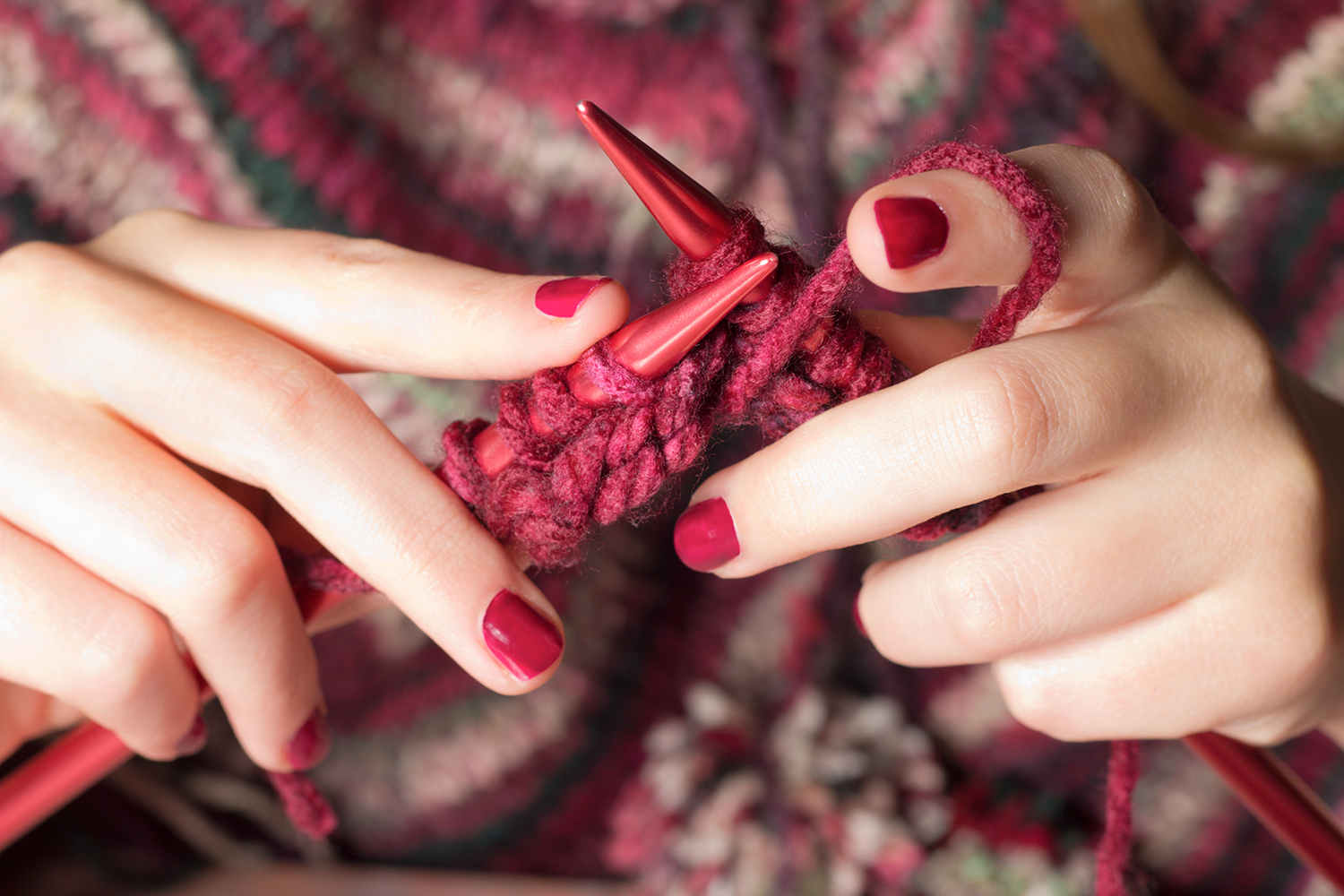Winter 2018, South Korea. Summer 2021, Tokyo. It wasn’t just the Olympic snowboarding or diving that caught the attention of the fans and media. It was the knitting.
As a member of his team got ready to ride, Finnish snowboarding coach Antti Koskinen gave him a fist bump, transferring his yarn and needles to one hand to do so.
Fast forward three and a half years, and there, in the stands in Tokyo, was British diver Tom Daley knitting as he watched members of his team compete. Daley says knitting relieves stress and helps him find mindfulness and calm.
How Knitting Helps with Stress
Two decades ago, Ellen B. Rubin made a similar discovery. The former immunology researcher observed people who were helped by knitting or crocheting.
Now, she says, she recently had her observations validated: “Stress levels are affected by knitting and crochet by decreasing cortisol levels.”
This has the effect of lowering the heart rate and slowing breathing as “fight or flight” syndrome is brought under control.
Rubin cites diminished worrying as one of knitting’s benefits. “Knitting has also been shown to lower one’s blood pressure,” she says, “and may protect the brain from damage due to aging.”
Keep Calm and Spread Happiness
The self-styled “pied piper of the therapeutic benefits of knitting and crochet,” Rubin says they “not only promote one’s own wellness but also that of others when a recipient receives a handmade item.”
To help people achieve the benefits of knitting, Rubin opened a shop, Luv2Knit & More, in Jenkintown, Pennsylvania, and is creative director of the nonprofit division, Therapeutic Crafters on Call.
While more research is called for, one study of more than 3,500 knitters found “a significant relationship between knitting frequency and feeling calm and happy.”
The study authors also said, “More frequent knitters also reported higher cognitive functioning.”





